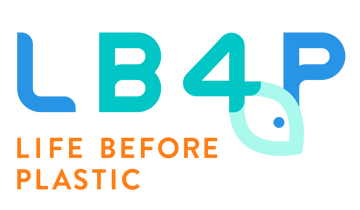Plastic-Free July: Eco Kitchen Swaps
During plastic-free July we’ll be demonstrating how to cut down on waste throughout your home.
Plastic-Free July is the prime time for you to get on board with millions of other people who are trying to go plastic free.
As a plastic-free shop, and having started our own zero waste lifestyle two years ago, we’ve got the know-how to help kick start your journey.
Each week we'll help you to make the swap to eco-friendly alternatives in a different area of your life. We want to demonstrate how being plastic free can be just as easy as "convenient" alternatives and why it's better for you health, soul and the planet.
This week we’re talking about eco kitchen swaps.
So, what plastic items should you be swapping out of your kitchen?
1. Clingfilm
A staple of food storage, almost every household has a roll of clingfilm in their cupboard. Clingfilm is the epitome of single-use plastic.
Made from polyvinyl chloride (PVC), almost every piece of clingfilm is only used once. If you’ve ever used it this won’t come as a surprise. It’s true to its name and will stick to everything, including any living thing that comes across it.
In the UK, on estimate, we use around 745,000 miles of it a year. As single-use plastic, clingfilm is likely to end up in landfill, or if disposed of incorrectly, the ocean. As PVC is not biodegradable, just about every piece of clingfilm ever made is still on the planet unless it has been burned.
Unfortunately, this isn’t the only problem with clingfilm. If heated, the plastic is known to leach into food and drink. Consuming plastic is not a good idea. There have been studies into the connection between plastic and cancer, infertility and problems with foetal development.
As an alternative, why not store your food in reusable containers, or an even more direct swap, wrap your food with a beeswax wrap. Made from fabric and beeswax, the wrap is natural and can be used again and again.
Switch to reusable beeswax wraps.

2. Single-use plastic produce bags
When shopping for loose fruit and veg in supermarkets, you will often find flimsy single-use plastic produce bags on offer to collect your items together. These thin, film-like plastic bags are either made from high-density polyethylene (HDPE) or low-density polyethylene (LDPE).
While these plastic bags are recyclable in some councils, only 1 in 100 are recycled in the UK. Not only are they difficult to reuse – the material means they are prone to breaking easily – but they aren’t disposed of in the correct way, which contributes to pollution.
This is an easy swap. Reusable produce bags made from sustainable cotton are lightweight, can be popped in the washing if they need cleaning and, best of all, can be reused endlessly.
Take a look at the different produce bags available.
3. Washing-up sponge
As a necessity in most kitchens, a washing-up sponge is one of those little bits of plastic you don’t even realise is plastic.
While there are the rare few that do biodegrade in the right conditions, most are synthetic and made from polyester. Polyester does not degrade, meaning that all washing-up sponges made from this material are likely to be sat in landfills.
Polyester can cause problems for those with sensitive skin, causing rashes and redness. If you manage to get your hands on a cellulose sponge that does biodegrade, these can harbour bacteria and fungi if they remain wet.
An ideal alternative are dish brushes and scourers made from natural coconut fibre, which are both antibacterial and non-toxic. As a natural material they’re fully biodegradable and work just as well as their plastic counterparts.
Swap to plastic-free washing up alternatives today.

4. Tea bags
Did you know that most tea bags contain plastic? A study a few years ago found that most tea bags contain up to 25% plastic. Mental.
The plastic is used to seal the tea bag together. While this may be good in theory, in reality every cup of tea is brewed with a plastic tea bag, and micro-plastics and nano-plastics are released into the water. This means we are literally drinking plastic.
The plastic most commonly used is polypropylene, a plastic that is known to impact our endocrine system. Our bodies end up creating either too many or too little hormones than we need. This has been linked to cancer, infertility and obesity.
While that all sounds quite stressful, it’s an easy switch. Get yourself some loose tea and brew your cuppa in a tea strainer or reusable cotton tea bag. Plastic free, easily cleaned and reusable. What’s not to love?
Browse our plastic-free tea and coffee solutions.
Conclusion
If you're starting in the kitchen, you can make a dramatic impact to your plastic use. By reducing your plastic intake, you can look out for both yourself and the planet.
Making the small changes we’ve suggested, like dish brushes and loose tea, you’ll soon be on your way to having a sustainable kitchen.
These are just a selection of options you can take with you, but browse our range of eco-friendly kitchen swaps for a comprehensive list.
It doesn’t stop in the kitchen either. Our shop is here to help you discover all sorts of eco swaps.
How is your Plastic-Free July going? Let us know in the comments below.

